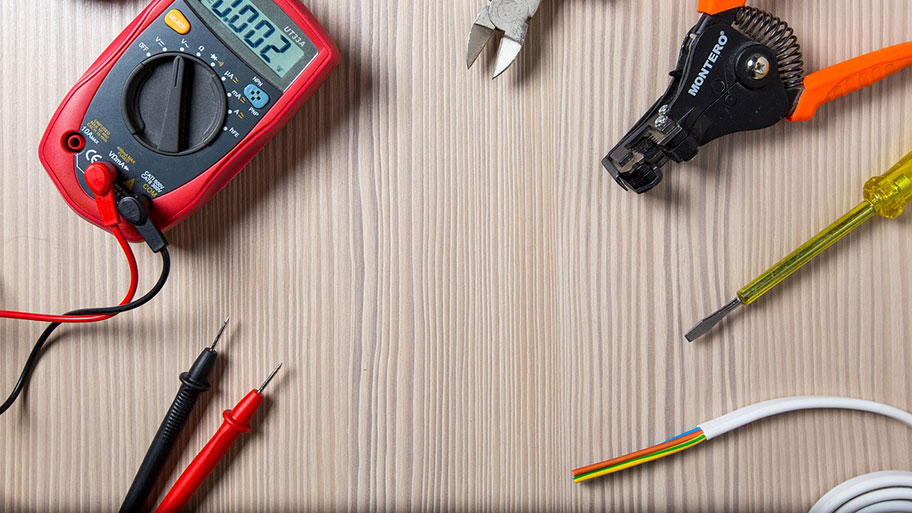Electricity is a vital part of modern living, powering our homes, appliances, and devices. However, it comes with risks that can lead to fires, electrical shocks, and other hazards if not handled properly. According to the National Fire Protection Association (NFPA), electrical issues cause an average of 46,700 home fires each year, resulting in about 390 deaths, 1,330 injuries, and over $1.5 billion in property damage.
Additionally, the Electrical Safety Foundation International (ESFI) reports that home electrical fires account for nearly 51,000 fires annually, with faulty wiring and overloaded circuits being among the top culprits.
In Hampton Roads, VA, where environmental factors like high humidity, coastal storms, and flooding can significantly impact electrical systems, homeowners must be especially vigilant in ensuring their safety. Understanding the specific challenges posed by the local climate can help them take proactive measures.
For instance, moisture can lead to corrosion of electrical components, increasing the risk of short circuits and malfunctions. Storm surges or heavy rainfall can also cause flooding, presenting a serious threat to electrical equipment.
To help protect your home and loved ones, here are essential electrical safety tips:
Understand Your Home’s Electrical System
Locate Your Electrical Panel
Every homeowner should know where their main breaker panel is and how to shut off the power in an emergency. This knowledge can be lifesaving if you ever need to stop an electrical fire or if flooding threatens your home.
Know the Signs of Electrical Problems
Flickering lights, frequently tripped circuit breakers, and warm or discolored outlets are all signs of potential electrical hazards. If you notice any of these issues, don’t ignore them—call a licensed electrician to investigate.
Hampton Roads Tip: The salty air and high humidity common to areas like Virginia Beach and Norfolk can corrode electrical components faster than in inland locations. Regular inspections can help you catch issues early.
Be Aware of Outdoor Electrical Safety
Use Outdoor-Rated Equipment
Always use weatherproof and outdoor-rated extension cords, plugs, and light fixtures. These are designed to withstand moisture and prevent electrical shocks. This is especially important for outdoor outlets near the coast, where rain and salt air can cause corrosion.
Stay Clear of Downed Power Lines
If you encounter a downed power line after a storm, stay at least 30 feet away and contact your utility company immediately. Do not attempt to move the line or anything in contact with it.
GFCI Protection
Ground Fault Circuit Interrupter (GFCI) outlets are essential in areas exposed to moisture, like bathrooms, kitchens, garages, and outdoor spaces. They cut off power when they detect a ground fault, helping to prevent electrical shocks. If your home doesn’t have GFCI outlets in these areas, consider having them installed.
Practice Safe Use of Electrical Appliances
Avoid Overloading Outlets
Plugging too many devices into a single outlet or power strip can cause overheating and increase the risk of fire. Spread out your electrical load, and use surge protectors for valuable electronics.
Inspect Cords and Appliances Regularly
Check cords and plugs for signs of damage, like fraying or exposed wires. Never use a damaged appliance, and replace any faulty wiring immediately. Also, ensure that cords are kept away from high-traffic areas where they can become a tripping hazard.
Use Space Heaters Wisely
During colder months, space heaters are a common source of warmth, but they can also be a fire hazard. Keep heaters at least three feet away from flammable objects like curtains, bedding, and furniture. Always turn off space heaters when you leave the room or go to sleep.
Childproof Your Home’s Electrical System
Outlet Covers
If you have young children, use outlet covers or install tamper-resistant outlets to prevent electrical shocks. These small safety devices can make a big difference in protecting curious kids from danger.
Secure Electrical Cords
Keep electrical cords out of reach and secure them with cord organizers. This not only keeps your home tidy but also prevents children from pulling on cords or chewing on them.
Be Prepared for Power Outages
Generator Safety
If you use a generator during a power outage, make sure it’s set up outside in a well-ventilated area, at least 20 feet away from your home. Never run a generator indoors or in an enclosed space, as it produces deadly carbon monoxide gas.
Unplug Appliances During a Storm
Severe storms are common in Hampton Roads and can lead to power surges. Unplug your valuable electronics to protect them from damage. If you experience frequent power surges, consider having a whole-house surge protector installed.
Avoid DIY Electrical Work
Electrical work is complex and can be dangerous if not done correctly. While it may be tempting to fix electrical issues yourself, it’s safer and more efficient to hire a licensed professional.
When to Call a Professional
If you’re dealing with frequent circuit breaker trips, need to install new wiring, or are experiencing any of the warning signs mentioned above, it’s time to consult an expert.
Trust Local Experts
Hampton Roads electricians are familiar with local building codes and environmental challenges. Using a local professional ensures your home’s electrical system is up to standard and protected against the unique conditions in the area.
Conclusion
Electrical safety is crucial for every Hampton Roads homeowner.
Understanding your home’s electrical system is the first step towards ensuring safety; this includes knowing the location of your circuit breakers, the types of wiring in your home, and how to identify potential issues.
Practicing safe habits, such as avoiding overloading outlets and using appliances correctly, can significantly reduce the risk of electrical fires and accidents.
Additionally, knowing when to call a professional is vital; if you notice flickering lights, frequent circuit trips, or burning smells, don’t hesitate to seek expert assistance.
By taking these precautions, you can protect your home and loved ones from potential hazards.
If you need help with your electrical system or want to schedule a thorough inspection, use Hampton Roads Home Services. They can connect you with trusted local electricians who have the expertise to keep your home safe, efficient, and up to code. A little proactive maintenance can go a long way in ensuring peace of mind for you and your family.


